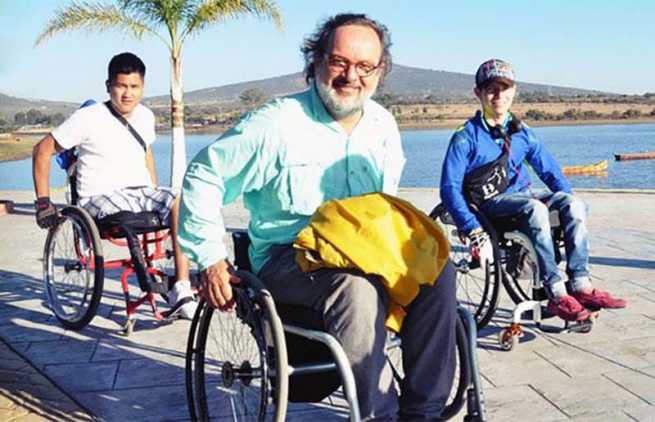The project started in 2018 and was created with the aim of giving young people with spinal cord injuries the physical independence and renewed self-esteem they need to actively participate in society. To this end, the centre will be equipped with state-of-the-art technology and innovative resources. Within the first four years, the centre is expected to treat 500 patients with spinal cord injuries, mainly children and young adults between the ages of 12 and 35, who live in poverty and a highly vulnerable state.
“The Latin American Center for the Treatment of Spinal Cord Injuries will ensure that young people with these problems have access to the treatment and rehabilitation they need,” said Fr Gus Baek, Head of the "Salesian Missions" Mission Office. “Educational and community inclusion for young people with physical disabilities has been an objective of the Salesian missionaries in Mexico for several years. In fact, missionaries help young people with disabilities to access adequate education and formation.”
People who use wheelchairs in Mexico have difficulty even crossing the streets of the city independently. The roads have various critical issues and there is a lack of lifts and other means of accessibility in public transport and in the workplace. People with spinal cord injuries therefore struggle for a chance to be successful.
Only in 1999 were people with disabilities granted access to full health care rights in Mexico. According to the international resource center "Global Disability Rights Now", 4.16 million people in Mexico have motor disabilities and this part of the population remains marginalized and experiences significantly higher rates of poverty and unemployment than people without disabilities. Because of these disadvantages, people with disabilities are often more dependent on family and government support and lack individual power to improve their lives.
Spinal cord injuries require a high degree of specialized care and rehabilitation to help patients recover from the trauma of their injury and adapt to a radically new way of living in a wheelchair. Most hospitals in Mexico are not equipped to provide this level of personalized attention and care. In addition to receiving physical rehabilitation and psychological assistance, patients must learn new techniques for coping with everyday situations. Furthermore, both patients and families need to be educated in preventive measures to avoid potentially life-threatening complications associated with a sedentary lifestyle.


